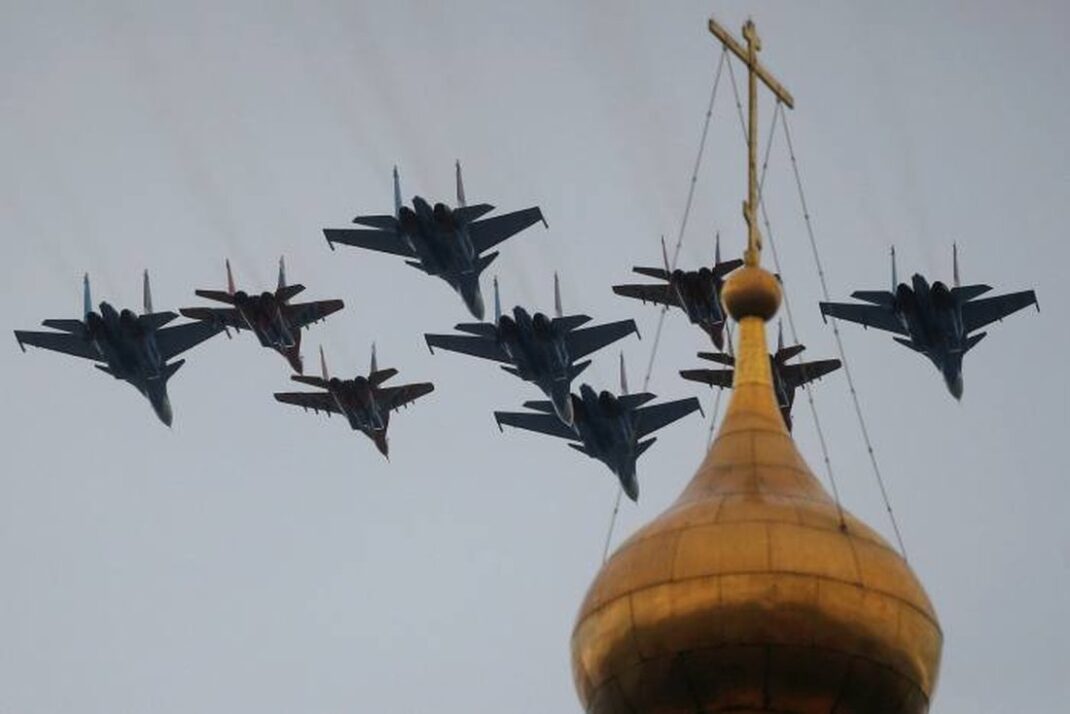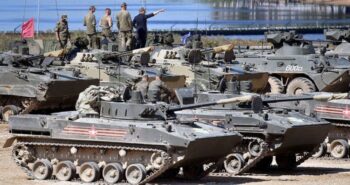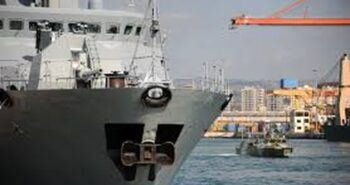
UN experts are investigating the deployment of at least eight Russian-made fighter jets to Libya in support of renegade general Khalifa Haftar, diplomats and people briefed on the matter said.
If confirmed, the aircraft, which the experts suspect came from Syria, would be the latest indication that foreign powers involved in Syria’s nine-year conflict are escalating their proxy war on Libya’s battlefields.
It would suggest the Kremlin is stepping up its support for Gen Haftar and diplomats fear it could risk a direct confrontation between Russia and Turkey, which back rival Libyan factions.
“This is Syria playing out right here in Libya, this is becoming a real proxy war,” said one western official, who asked not be identified.
Gen Haftar, who has besieged Tripoli for more than a year in bid to overthrow Libya’s UN-backed government, is supported by Russia, the United Arab Emirates and Egypt.
The Tripoli-based Government of National Accord is backed by Turkey, which this year deployed forces and military equipment to Libya, including Hawk air-defence systems and drones that have negated Gen Haftar’s previous air superiority, altering the dynamics of the conflict.
Gen Haftar’s self-styled Libyan National Army has suffered a series of battlefield setbacks in western Libya in recent weeks, including the loss of al-Watiya air base this week after a battle in which Turkish drones destroyed Russian-made Pantsir air-defence systems.
The concern now is that the deployment of the Russian jets could risk a more direct confrontation between Russia and Turkey, which also back opposing sides in the Syrian conflict.
“What are the Turks going to do now, bring in their own fixed wing aircraft?” said the western official. “We are into another chapter.”
The Russian and Turkish foreign ministers said they backed an immediate ceasefire in Libya during a phone call on Thursday, Russia’s foreign ministry said in a statement.
But Turkey’s foreign ministry, in a separate statement, warned of “grave consequences” if Turkish interests in Libya are targeted.
Referring to a reported warning by an LNA commander that Gen Haftar’s forces could launch an air campaign against Turkish assets in the country, the ministry said the threat reflected the “delusion of elements linked to Haftar which have, in recent times, suffered battlefield losses.”
The ministry added: “It is a clear indication that the putschist Haftar and his supporters intend to escalate the conflict in Libya”.
Russia and Turkey did attempt to broker Libyan ceasefire at talks in Moscow in January, but Gen Haftar refused to sign. The UAE, which increasingly views Turkey as a nefarious influence in the Arab world, also called for a ceasefire this week.
But diplomats fear all sides will now double-down in their support of the Libyan factions.
“What we have seen is one side escalates and the other side escalates in kind,” said one western diplomat, referring to Russia and Turkey. “Do they really want to do that?”
Fathi Bashagha, interior minister of the UN-backed government, told Bloomberg that he had received information that at least six MiG-29s and two Sukhoi 24s had flown into Haftar-controlled eastern Libya from Hmeimim air base in Syria.
The western diplomat said “it is almost certainly more than this” number of aircraft, adding that Gen Haftar’s forces do not have the capacity to fly them.
Libya is already awash with foreign mercenaries, including Syrians who were flown in by both sides this year.
Turkey has dispatched about 3,000 Syria militiamen aligned to Ankara to fighting alongside the Tripoli-based government in Libya, while some 2,000 Syrian fighters from Assad-controlled territory have been flown into the north African state to fight alongside Gen Haftar’s forces, diplomats and experts say.
Gen Haftar, who controls eastern and central Libya, opened an “embassy in Damascus in March.
There are also several hundred Russian mercenaries from the Wagner private security group fighting with his forces, diplomats say.
Wolfram Lacher, a Libya analyst at German Institute for International and Security Affairs, said the deployment of the MiGs could be aimed at “putting Turkey in its place and limiting its ambition of pushing Haftar out of western Libya.”
He added that if Russia used the MiG 29s “the first thing they would have to do is bomb Watiya base so the Turks can’t use it”.
“They would also take out the [Turkish] air defences in Tripoli and Misurata. Beyond that it would mean a kind of race between Turkey and Russia over who can establish air superiority,” he added.
“The big question is whether Russia and Turkey can step back from this looming escalation, and once again press their Libyan clients to negotiate a ceasefire. ”
Moscow has consistently denied providing military support to Gen Haftar’s forces and this week rejected a UN report that Russian mercenaries were fighting in Libya.
The UN has repeatedly accused foreign powers of violating an arms embargo on Libya — diplomats say the UAE flew in up to 10,000 tonnes of military equipment this year in support of Gen Haftar. The UAE has denied operating arms flights to Libya.
UN experts are also investigating the shipping of nearly 11,000 tonnes of jet fuel from the UAE to Benghazi in March which they believe could only be used for combat purposes, diplomats say.
Stephanie Williams, the acting UN envoy to Libya, said this week that the conflict had reached another “turning point”.
“From what we are witnessing in terms of the massive influx of weaponry, equipment and mercenaries to the two sides, the only conclusion that we can draw is that this war will intensify, broaden and deepen,” she told the UN Security Council.
“As the foreign intervention increases, the Libyans themselves are getting lost in the mix.”
___________




